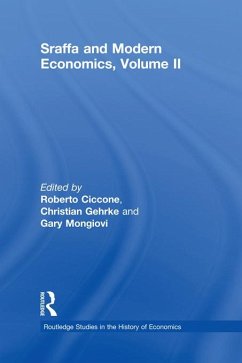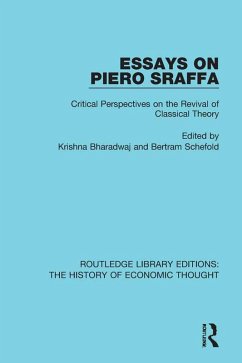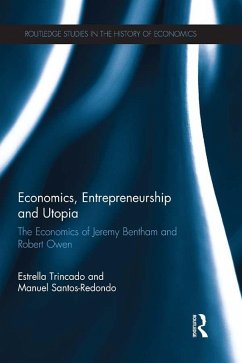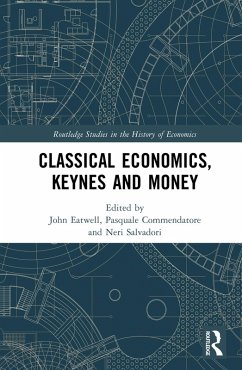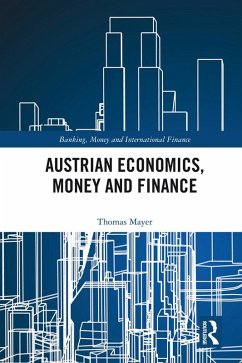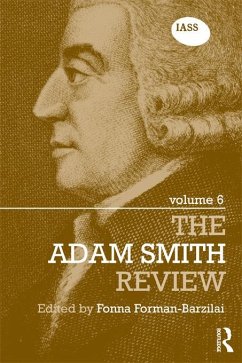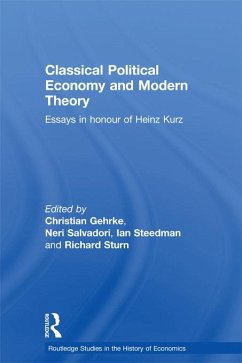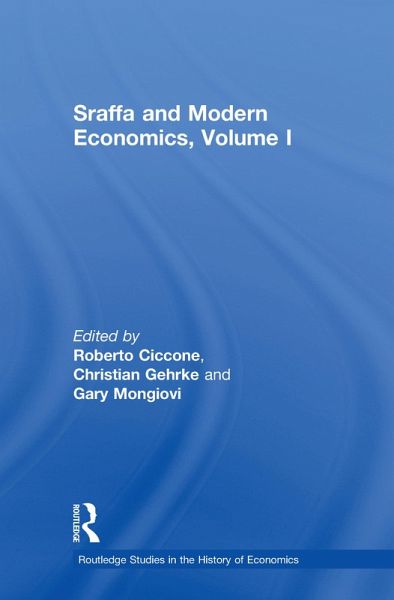
Sraffa and Modern Economics, Volume I (eBook, ePUB)
Versandkostenfrei!
Sofort per Download lieferbar
51,95 €
inkl. MwSt.
Weitere Ausgaben:

PAYBACK Punkte
26 °P sammeln!
Analyzing Sraffa, one of the key figures in the history of economics, this book explores his legacy and the relevance of his thought for modern economics. Written by an array of internationally respected contributors, including Schefold, Aspromourgos, Nell and Kurz it is an invaluable tool for all those studying the history of economic thought.
Dieser Download kann aus rechtlichen Gründen nur mit Rechnungsadresse in A, B, BG, CY, CZ, D, DK, EW, E, FIN, F, GR, HR, H, IRL, I, LT, L, LR, M, NL, PL, P, R, S, SLO, SK ausgeliefert werden.




